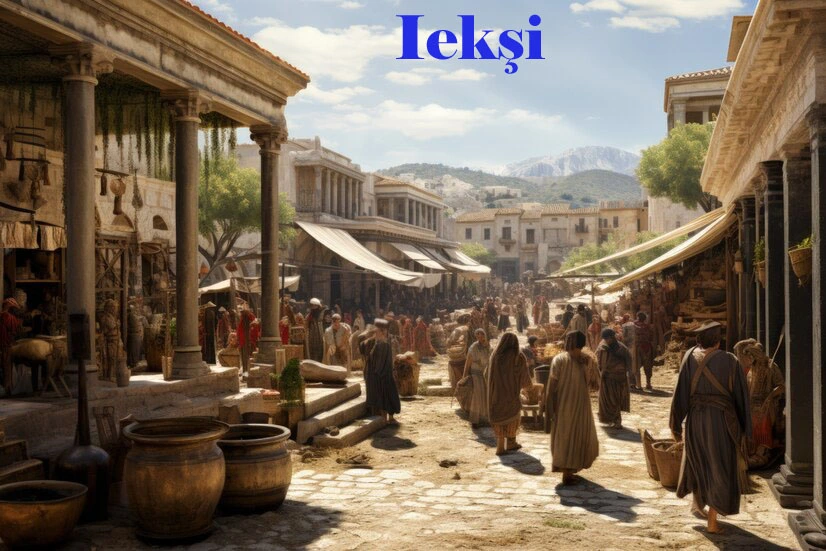Introduction
Iekşi, a place steeped in rich cultural heritage, offers a captivating glimpse into the traditions and history that have shaped its identity. Understanding and preserving cultural heritage is crucial, as it provides a sense of identity and continuity for communities. This article delves into the various aspects of Iekşi’s cultural heritage, exploring its history, language, art, festivals, and more.
Historical Background
Origins of Iekşi
The origins of Iekşi trace back centuries, with evidence of early settlements and thriving communities. Archaeological findings suggest that Iekşi was a hub of activity and trade, influencing and being influenced by neighboring regions.
Key Historical Events
Throughout its history, Iekşi has witnessed significant events that have shaped its cultural landscape. From ancient battles and treaties to periods of peace and prosperity, each event has left an indelible mark on the region’s cultural fabric.
Geographical Setting
Location and Environment
Iekşi is located in a region characterized by diverse landscapes, from lush forests and rolling hills to serene rivers and expansive plains. This varied environment has influenced the lifestyle and traditions of its inhabitants.
Climate and Natural Resources
The climate of Iekşi is generally temperate, with distinct seasons that contribute to its agricultural productivity. Rich in natural resources, the area has historically supported a range of crafts and industries, further enriching its cultural heritage.
Language and Literature
The Iekşi Language
The Iekşi language is a cornerstone of the region’s cultural identity. It is known for its melodic tones and complex grammar, reflecting the intricate thought patterns and rich oral traditions of its speakers.
Notable Literary Works
Iekşi boasts a wealth of literary works, from ancient epics and folktales to contemporary poetry and prose. These works offer insights into the values, beliefs, and historical experiences of the people.
Traditional Music and Dance
Musical Instruments
Music is an integral part of Iekşi culture, with traditional instruments like the lute, flute, and drum playing a central role in ceremonies and celebrations. Each instrument has a unique sound that contributes to the region’s distinctive musical style.
Dance Forms and Their Significance
Dance in Iekşi is not just a form of entertainment but a means of storytelling and preserving history. Traditional dance forms, characterized by intricate footwork and expressive gestures, convey stories of love, heroism, and everyday life.
Art and Craftsmanship
Traditional Crafts
Iekşi is renowned for its exquisite craftsmanship, particularly in weaving, pottery, and metalwork. These crafts are passed down through generations, with each artisan adding their own touch to the traditional designs.
Famous Artisans and Their Work
The region has produced many renowned artisans whose work has gained recognition both locally and internationally. Their creations, often inspired by nature and daily life, are celebrated for their beauty and craftsmanship.
Festivals and Celebrations
Major Festivals
Festivals in Iekşi are vibrant expressions of the region’s cultural heritage. Major festivals often involve elaborate rituals, music, dance, and communal feasts, providing opportunities for the community to come together and celebrate their shared traditions.
Cultural Practices and Traditions
Cultural practices in Iekşi are deeply rooted in the region’s history and beliefs. From traditional wedding ceremonies to harvest festivals, these practices are a testament to the community’s enduring connection to their heritage.
Cuisine
Traditional Dishes
The cuisine of Iekşi is a delightful blend of flavors and ingredients, reflecting the region’s agricultural bounty. Traditional dishes often feature grains, vegetables, and locally sourced meats, prepared using time-honored methods.
Unique Ingredients and Cooking Methods
Unique ingredients like wild herbs and spices play a crucial role in Iekşi cuisine. Traditional cooking methods, such as slow-cooking and fermenting, enhance the flavors and nutritional value of the dishes.
Architecture
Historical Buildings and Structures
The architectural heritage of Iekşi includes a range of historical buildings, from ancient temples and fortresses to traditional houses and public spaces. These structures are a testament to the region’s architectural ingenuity and aesthetic sensibilities.
Architectural Styles
The architectural styles in Iekşi vary, reflecting influences from different periods and cultures. Common features include intricate carvings, spacious courtyards, and the use of natural materials like wood and stone.
Religion and Beliefs
Major Religions Practiced
Religion plays a significant role in the cultural life of Iekşi. The region is home to various religious practices, each contributing to the rich tapestry of cultural traditions.
Influence on Culture and Daily Life
Religious beliefs and practices influence many aspects of daily life in Iekşi, from festivals and rituals to social customs and community values.
Modern Influence and Preservation Efforts
Impact of Modernization
Modernization has brought both opportunities and challenges to Iekşi. While it has led to economic growth and improved living standards, it has also posed threats to the preservation of traditional culture and practices.
Cultural Preservation Initiatives
Efforts to preserve Iekşi’s cultural heritage are underway, with various initiatives aimed at documenting and promoting traditional practices. These include cultural festivals, educational programs, and the establishment of museums and heritage sites.
Conclusion
Iekşi’s cultural heritage is a rich and intricate tapestry that reflects the region’s history, geography, and the creativity of its people. Preserving this heritage is crucial for maintaining a sense of identity and continuity. As modernization continues to shape the region, it is important to balance progress with the preservation of cultural traditions, ensuring that future generations can enjoy and learn from Iekşi’s rich cultural legacy.
FAQs
1. What is the significance of Iekşi in cultural studies? Iekşi is significant in cultural studies for its rich and diverse cultural heritage, offering insights into traditional practices, languages, and art forms.
2. How has modernization impacted Iekşi’s cultural heritage? Modernization has brought economic benefits but also challenges in preserving traditional practices and cultural identity.
3. What are some must-visit places in Iekşi for cultural enthusiasts? Must-visit places include historical buildings, museums, traditional craft centers, and sites of major cultural festivals.
4. How can visitors participate in local traditions and festivals? Visitors can participate in local traditions and festivals by engaging with community events, respecting local customs, and supporting cultural preservation initiatives.
5. What steps are being taken to preserve Iekşi’s cultural heritage? Steps to preserve Iekşi’s cultural heritage include documentation, educational programs, cultural festivals, and the establishment of museums and heritage sites.












2 thoughts on “The Rich Cultural Heritage of Iekşi”